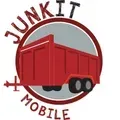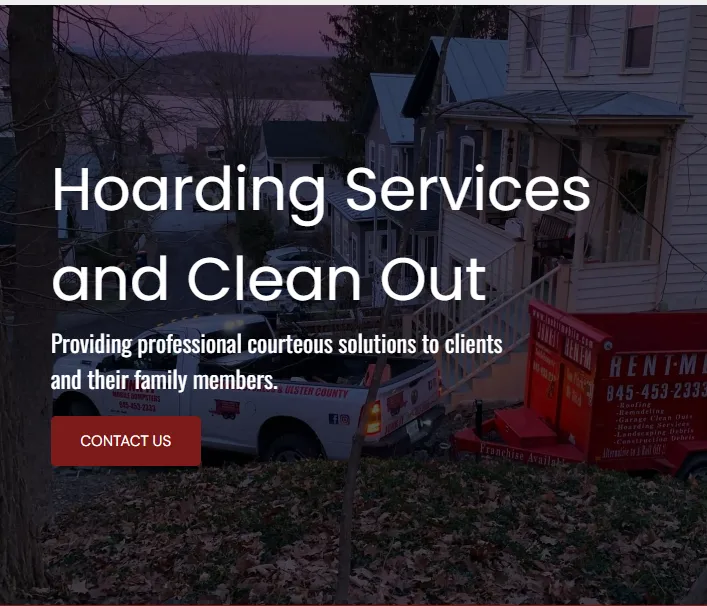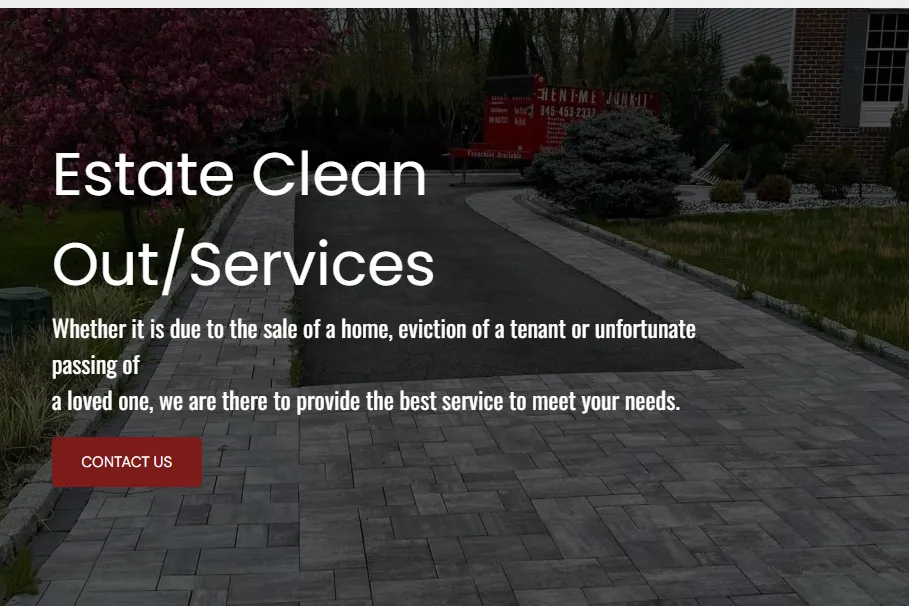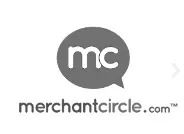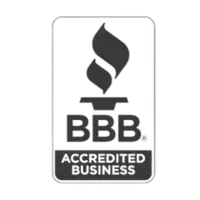JUNK IT MOBILE DUMPSTER RENTALS IN HUDSON VALLEY, NY
From small residential cleanups to large commercial projects, Junk It stands out as the premier choice for a successful cleanup projects.
10YD MOBILE DUMPSTER
Holds 4x Pickup
Truck Loads

10 x 6 x 4.5
10YD
15YD MOBILE DUMPSTER
Holds 6x Pickup
Truck Loads

14 x 7 x 4.5
15YD
20YD MOBILE DUMPSTER COMBO DEAL
Holds 8x Pickup
Truck Loads

10 x 6 x 4.5 + 10 x 6 x 4.5
20YD
25YD MOBILE DUMPSTER COMBO DEAL
Holds 10x Pickup
Truck Loads

10 x 6 x 4.5 + 14 x 7 x 4.5
25YD
30YD MOBILE DUMPSTER COMBO DEAL
Holds 12x Pickup
Truck Loads

14 x 7 x 4.5 + 14 x 7 x 4.5
30YD
JUNK IT MOBILE DUMPSTER RENTALS IN HUDSON VALLEY, NY
From small residential cleanups to large commercial projects, Junk It stands out as the premier choice for a successful cleanup projects.
10YD MOBILE DUMPSTER
Holds 4x Pickup
Truck Loads

10 x 6 x 4.5
10YD
15YD MOBILE DUMPSTER
Holds 6x Pickup
Truck Loads

14 x 7 x 4.5
15YD
20YD MOBILE DUMPSTER COMBO DEAL
Holds 8x Pickup
Truck Loads

10 x 6 x 4.5 + 10 x 6 x 4.5
20YD
25YD MOBILE DUMPSTER COMBO DEAL
Holds 10x Pickup
Truck Loads

10 x 6 x 4.5 + 14 x 7 x 4.5
25YD
30YD MOBILE DUMPSTER COMBO DEAL
Holds 12x Pickup
Truck Loads

14 x 7 x 4.5 + 14 x 7 x 4.5
30YD
About Us
About Junk it Mobile
Junk It Mobile Dumpsters is family owned and operated and we are rapidly growing.
Let Junk It Mobile Dumpsters be your new resource for all your unwanted debris and waste management needs. We are fully licensed.
Green Waste
Our company is striving to specialize in ‘green waste removal’. In order to do our part in saving the environment, we separate our construction debris at transfer stations in the Hudson Valley. We pass along savings to our customers by separating materials such as paper, cardboard, metals, masonry, plastic, and vegetation.
Residential Clients
• Estate, Basement, Attic Clean Outs
• Hoarding Help
• Tenant Eviction
• Property Preservation Work
• Vacant Land Cleanup
• Construction, Demolition Debris
• Special Event Cleanup
• Home, Yard, Emergency Clean Outs
• Dumpster Alternative
• Apartment and Condo’s
• Property Owners
• Storage Unit Clean Outs
• Garbage Removal Alternative
• Pool, Deck Removed
Commercial Clients
• Contractors
• Real Estate Agents
• Property Management
• Storage Companies
• Realtors
• Trash Removal Alternative
• Relocation Companies
About Us
About Junk it Mobile
Junk It Mobile Dumpsters is family owned and operated and we are rapidly growing.
Let Junk It Mobile Dumpsters be your new resource for all your unwanted debris and waste management needs. We are fully licensed.
Green Waste
Our company is striving to specialize in ‘green waste removal’. In order to do our part in saving the environment, we separate our construction debris at transfer stations in the Hudson Valley. We pass along savings to our customers by separating materials such as paper, cardboard, metals, masonry, plastic, and vegetation.
Residential Clients
• Estate, Basement, Attic Clean Outs
• Hoarding Help
• Tenant Eviction
• Property Preservation Work
• Vacant Land Cleanup
• Construction, Demolition Debris
• Special Event Cleanup
• Home, Yard, Emergency Clean Outs
• Dumpster Alternative
• Apartment and Condo’s
• Property Owners
• Storage Unit Clean Outs
• Garbage Removal Alternative
• Pool, Deck Removed
Commercial Clients
• Contractors
• Real Estate Agents
• Property Management
• Storage Companies
• Realtors
• Trash Removal Alternative
• Relocation Companies
AFFORDABLE DUMPSTER RENTALS
From construction sites to home clean-ups there are many reasons for needing a dumpster rental, and our team is here to help accommodate them all. We understand that each project comes with its own unique set of circumstances, this is why we work closely with our clients to ensure their total satisfaction on every project.
Junk It Mobile Dumpsters provides the most affordable dumpster rentals. Our team is flexible and works fast to help you meet your deadlines. We offer same day dumpster drop-offs and pick-ups to ensure you are able to clear the space you need in the time frame you desire.
We understand it can be overwhelming watching the trash pile up in your space with nowhere to go. Making small back-and-forth trips to a dumping site requires time, gas, and money for every trip you make. When you work with Junk It Mobile Dumpsters, you can clear out your entire space at once and let us handle the disposal of your junk. Contact us now to take the first step toward a clutter-free and organized space.
AFFORDABLE DUMPSTER RENTALS
From construction sites to home clean-ups there are many reasons for needing a dumpster rental, and our team is here to help accommodate them all. We understand that each project comes with its own unique set of circumstances, this is why we work closely with our clients to ensure their total satisfaction on every project.
Junk It Mobile Dumpsters provides the most affordable dumpster rentals. Our team is flexible and works fast to help you meet your deadlines. We offer same day dumpster drop-offs and pick-ups to ensure you are able to clear the space you need in the time frame you desire.
We understand it can be overwhelming watching the trash pile up in your space with nowhere to go. Making small back-and-forth trips to a dumping site requires time, gas, and money for every trip you make. When you work with Junk It Mobile Dumpsters, you can clear out your entire space at once and let us handle the disposal of your junk. Contact us now to take the first step toward a clutter-free and organized space.
SERVICES
A full clean out service provider
CONSTRUCTION CLEANUP
When It Comes To Construction Cleanup Junk It Is On Your Side!
At Junk It Mobile Dumpsters, we have made it simple to rent a dumpster for construction cleanup. We’ve been providing dumpster rentals for construction cleanups in all stages to help you keep your work site from piling up with debris.
When you are looking for prompt, efficient, and affordable dumpster rental services, Junk It Mobile Dumpsters has got you covered. We have a reputation for being reliable and fast with our same-day drop-off and pick-up services. We understand your need for a clean workspace and work with you to accommodate your schedule and space.
Our top-quality customer service has helped us to establish a reputation for ourselves as the go-to dumpster rental company. We have delivered mobile dumpsters to commercial construction sites with proven success for many years. We have a variety of different sized dumpsters for construction cleanup to ensure you are able to remove all of the debris you need at once.
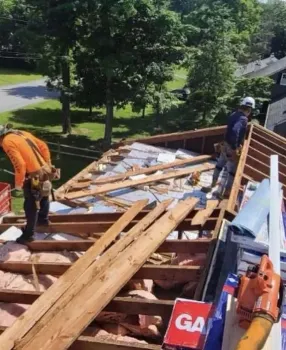
TRASH HAULING
Hauling Services
After you have collected all of your trash, garbage, and debris into a localized pile, it is time to dispose of it and remove it from your property. You could spend extra time, energy, and make multiple trips from your location to a local dump or city recycling center, which will cost you…or with our help you can take care of your trash hauling in your area in one quick trip. Junk It Mobile Dumpsters provides quick, flexible, and professional trash hauling services to help you get the quickest cleanup up for your space. Our team has years of experience providing the best customer service and fastest turnaround available today.
We are careful to accommodate your needs and keep our mobile dumpsters from getting in the way of your neighbors or damaging your property. We utilize a proven technique for quick removal with no damage to your property. Our quick and efficient hauling services are the best in the city and will help you with any project you are working on, big or small. We understand that when you have trash piling up you need it taken care of immediately. You can contact us on short notice, and our mobile dumpster will be available to you.
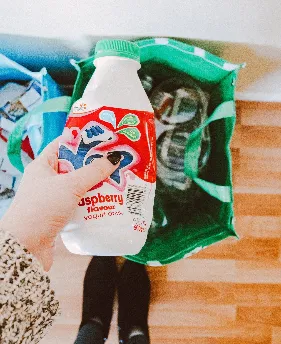
JUNK REMOVAL
Affordable Junk Removal
Whenever you have an excessive amount of trash piling up you may feel overwhelmed, not knowing how to remove it, or where to even dispose of such a high volume of junk at one time. This can make home cleanouts, demolition, and renovation projects back up and take longer than they should.
Junk It Mobile Dumpsters has the solution for all of your junk removal. We proudly supply the best on-site junk removal options throughout the city. Whether you are cleaning out your packed garage, taking on a massive home renovation project, or working on a construction site with large volumes of debris, our dumpsters can help you get the job done quickly. The best part is, once you have collected the trash, we will remove the waste from your home or business and dispose of it ourselves. This makes your job go much quicker and smoother!
Currently we offer 10-yard, 15-yard, 20-yard, and 30-yard mobile junk removal dumpsters. If you’re not sure which size of junk removal dumpster would be the right size for your trash removal project, contact our team and provide us with the details of your project. We will make recommendations based on the information provided and our years of experience working in junk removal and give you a price quote.
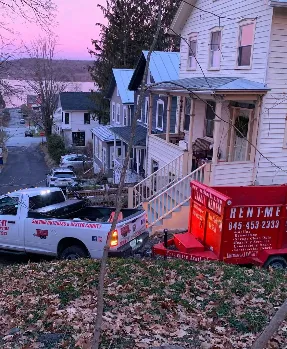
TRASH CONTAINER RENTAL
Trash Container Rental
Junk It Mobile Dumpsters provides residential and commercial trash container rental services that can help you with any cleanup project you have taken on. Our team exceeds all expectations with our quick and flexible trash container rentals. We know each cleanup project will come with its own set of unique needs; this is why we work with you to accommodate you throughout the entire process.
When it comes to trash container rental, Junk It Mobile Dumpsters does much more than just rent out trash containers for you to pile up your junk. Our team offers full cleanup services, meaning if you need someone to haul the trash from your commercial or residential space, we can load the trash containers ourselves. Once the trash has been fully loaded in the trash container, we will remove it from your property and properly dispose of all of the trash you have collected.
From the first phone call you make for a trash container quote until we are hauling the trash away from your property, you will be met with excellent customer service and easy communication. We want to help your project go as smoothly as possible. Contact us today to learn more about what makes us stand out as the best trash container rental company.
We want your trash container rental experience to be easy and helpful, so if you ever need to rent a trash container again or any of your family or friends ever need a trash container, don’t forget to contact Junk It Mobile Dumpsters. We maintain the quality of our services on each project we take on.
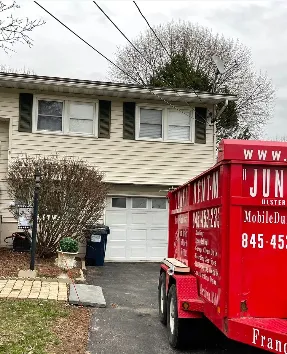
SAME-DAY TRASH REMOVAL
Say goodbye to junk—we're the trash removal experts you can trust!
Trash removal can be a difficult process when the amount of trash you have exceeds what can be taken away in your standard trash bins. It is easy for the trash to pile up, but it can be difficult to remove the trash or find the proper place to dispose of it, without having to pay outrageous fees for the actual drop-off. We know it can be overwhelming to take on a trash removal project and that is why we are here to help you!
Junk It Mobile Dumpsters provides the best trash removal dumpsters. We work with both residential and commercial projects to help you quickly remove the trash that has piled up in your space. Our trash removal dumpsters have been designed to be residential friendly, which makes it easy for us to fit in narrow streets and alleys to deliver your trash removal dumpster where you need it most.
Our trash removal services are available all year and all across the city so that you can begin your trash removal project at your convenience. There is no reason to continue letting the trash pile up in your space, instead contact our team today. You can tell us all about the size of your project so we can match you with an appropriately sized mobile dumpster for your needs.
No matter what size of trash removal project you are taking on, Junk It Mobile Dumpsters has the right trash removal dumpster for your needs. Currently, we offer trash removal dumpsters in 10-yard, 15-yard, 20-yard and 30-yard sizes. We can also help with larger projects. We have a fast and flexible turnaround that allows us to drop the trash off and pick it up on the same day!If you are looking for same day trash removal, contact Junk It Mobile Dumpsters today. Our team is here to help you clean your yard, garage, house, commercial space, and more with our superior same day trash removal services.
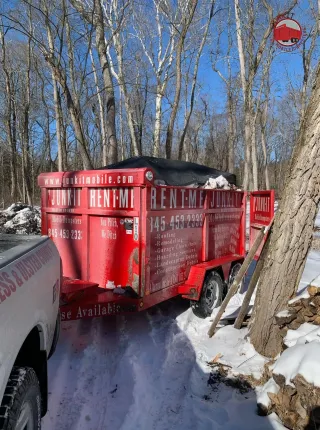
WASTE DISPOSAL
The Best Waste Removal Service in Your Area!
Waste disposal doesn’t have to be a difficult process for you! When you work with Junk It Mobile Dumpsters, our team can help you to take on any project with confidence and flexibility. We understand that each project is unique and will have its own set of challenges, but our team can help you. Whether you are looking for a waste disposal bin to pile your trash in and have hauled away, or you need help loading the waste in the disposal bin, we have got you fully covered.
We have a range of waste disposal dumpsters available for any size of project you might be starting. If you’re unsure which size of waste disposal dumpster would work best for your project, contact one of our many representatives in your area. They will happily work with you to make recommendations based on the information you have provided. From a quick one day rental service, to a multi day project that requires our team to load the trash ourselves, we have got you covered.
When we deliver a waste disposal dumpster, you can be sure it will be clean, well-maintained and easy to accommodate on your property. Once you have filled the waste disposal dumpster to the top, contact us and we will haul the trash away to be safely disposed of. When you work with Junk It Mobile Dumpsters, you can rest easy knowing that we will ensure all items are disposed of properly, according to all state laws and local ordinances.
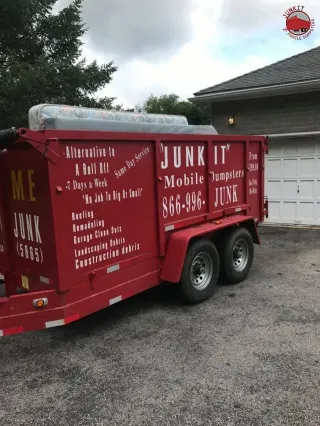
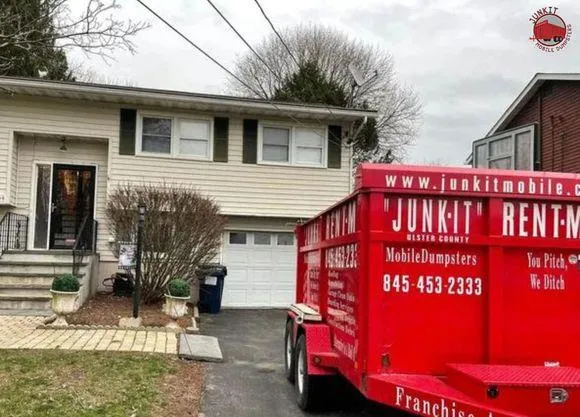
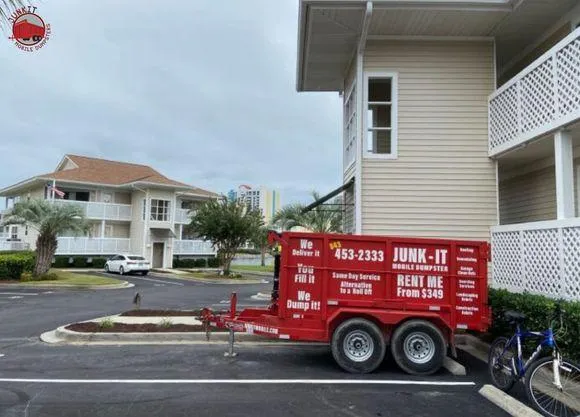
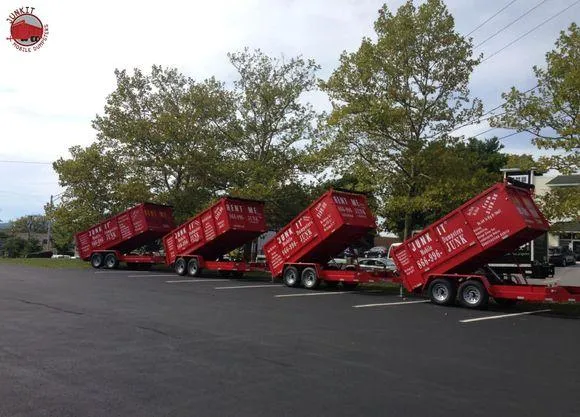
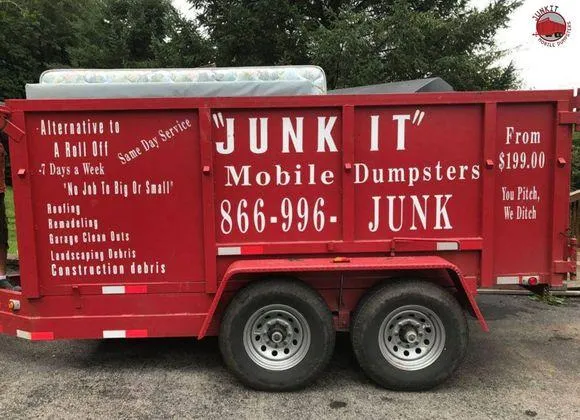




Mobile Dumpsters FAQs
Got a question? We’re here to help.
What are your business hours?
At Junk It Mobile Dumpsters, we understand that your junk removal needs can arise at various times. That's why we are committed to being available seven days a week, from Monday to Sunday, with convenient business hours from 7:00 AM to 7:00 PM.
Our team is here to assist you during these hours. With our flexible scheduling, you can count on us to accommodate your junk removal needs when it's most convenient for you.
We take pride in delivering reliable and efficient services during these hours, ensuring that you can enjoy a clutter-free space without the hassle. Contact us today, and let us help you with your junk removal project.
How does dumpster rental pricing work?
At Junk It Mobile Dumpsters, we believe in transparent and straightforward pricing for our dumpster rentals. Our pricing typically depends on a few key factors:
1. Dumpster Size: The size of the dumpster you choose will impact the cost. Larger dumpsters have a higher rental fee than smaller ones.
2. Rental Duration: The length of time you need the dumpster will also affect the total cost. We offer flexible rental periods to accommodate your project's timeline.
3. Location: Our pricing may vary slightly depending on your location.
4.Type of Debris: Some materials, like hazardous waste, may incur additional disposal fees.
5. Additional Services: Any added services, such as expedited delivery or pickups, may have associated costs.
For personalized quotes and to understand the pricing for your specific project, please contact us at 845-453-2333.
We're here to provide you with a clear and competitive pricing structure for your dumpster rental needs.
Are there any prohibited items for disposal?
At Junk It Mobile Dumpsters, we prioritize safety and responsible disposal practices. While our dumpsters can handle a wide range of materials, there are certain items that should not be placed in our containers. Prohibited items typically include hazardous materials like chemicals, paints, oils, asbestos, batteries, and flammable substances. Additionally, items such as tires, electronics, and large appliances may have specific disposal requirements.
To ensure a smooth and compliant disposal process, it's essential to check with our team about any prohibited items before loading the dumpster. We're here to provide guidance and answer your questions. Please feel free to reach out to us at 845-453-2333, and we'll assist you in properly disposing of your materials while adhering to safety and environmental regulations. Your safety and the protection of our environment are our top priorities.
What is the rental duration for a typical dumpster?
At Junk It Mobile Dumpsters, we prioritize safety and responsible disposal practices. While our dumpsters can handle a wide range of materials, there are certain items that should not be placed in our containers. Prohibited items typically include hazardous materials like chemicals, paints, oils, asbestos, batteries, and flammable substances. Additionally, items such as tires, electronics, and large appliances may have specific disposal requirements.
To ensure a smooth and compliant disposal process, it's essential to check with our team about any prohibited items before loading the dumpster. We're here to provide guidance and answer your questions. Please feel free to reach out to us at 845-453-2333, and we'll assist you in properly disposing of your materials while adhering to safety and environmental regulations. Your safety and the protection of our environment are our top priorities.
How do I schedule a dumpster pickup?
Scheduling a dumpster pickup with Junk It Mobile Dumpsters is easy and convenient. When your project is complete, or you've filled the dumpster, simply follow these steps:
1. Contact Us: Reach out to our team at 845-453-2333 to request a pickup. You can also discuss any specific pickup instructions or requirements.
2. Choose a Date: Work with our team to select a date for the pickup that fits your schedule.
3. Confirmation: We'll confirm the pickup date and ensure our team is ready for collection.
4. Prepare for Pickup: Make sure the area around the dumpster is clear and accessible for our team.
5. Collection: On the scheduled day, our team will arrive to collect the dumpster promptly.
Junk It Mobile Dumpsters is committed to making the entire process hassle-free. Contact us today to schedule your pickup or if you have any questions about the process.
What areas do you serve?
Junk It Mobile Dumpsters proudly serves multiple regions to meet your junk removal and dumpster rental needs effectively.
We're at your service in Hudson Valley and surrounding areas, providing convenient solutions for your cleanup projects.
To learn more about our services in these areas or to schedule your dumpster rental or junk removal, please contact us at 845-453-2333. We're dedicated to making your cleanup experience as smooth as possible, no matter where you're located.

Proud sponsor of

Junk It Mobile will match your donation to a local charity up to $50

Proud sponsor of

Junk It Mobile will match your donation to a local charity up to $50
Our Proud Achievements
5 Star Reviews
We have a reputation for providing the most convenient dumpster rentals paired with the best customer service in town.
Over 30, 000 dumpsters delivered
It’s easy to manage all of your documents in one place. You can also share with colleagues in a click.
+2 Million tons disposed
Once you have loaded our dumpsters with your junk we will safely dispose of the contents so you don’t have to
100% satisftied customers
We work hard to accommodate our customer’s needs to ensure that their clean-up projects go as smoothly as possible.
Our Proud Achievements
5 Star Reviews
We have a reputation for providing the most convenient dumpster rentals paired with the best customer service in town.
Over 30, 000 dumpsters delivered
It’s easy to manage all of your documents in one place. You can also share with colleagues in a click.
+2 Million tons disposed
Once you have loaded our dumpsters with your junk we will safely dispose of the contents so you don’t have to
100% satisftied customers
We work hard to accommodate our customer’s needs to ensure that their clean-up projects go as smoothly as possible.
CUSTOMERS LOVE OUR WORK

DAVID ARMSTRONG
They were very responsive and timely on their service. In less than half a day from my original request, I had a dumpster in my driveway ready to help me remodel my backyard. Highly recommend based on timeliness and reasonable pricing!
DONNA MATTERSON
Great service! Great price! Prompt and efficient.
Would recommend for all of your dumpster needs
CAROL CHAPMAN
Incredibly kind and flexible. The team worked tirelessly loading the dumpster and cleared the barn of debris cheerfully. Not only is the dumpster service a blessing with accurate times for delivery and removal given, but requesting help with removal brings an enthusiastic response.
CUSTOMERS LOVE OUR WORK

DAVID ARMSTRONG
They were very responsive and timely on their service. In less than half a day from my original request, I had a dumpster in my driveway ready to help me remodel my backyard. Highly recommend based on timeliness and reasonable pricing!
DONNA MATTERSON
Great service! Great price! Prompt and efficient. Would recommend for all of your dumpster needs
CAROL CHAPMAN
Incredibly kind and flexible. The team worked tirelessly loading the dumpster and cleared the barn of debris cheerfully. Not only is the dumpster service a blessing with accurate times for delivery and removal given, requesting help with removal brings an enthusiastic response.
© 2025 All Rights Reserved | Junk It Mobile Dumpsters
Website Managed by Leads By Vinny | Privacy & Terms
